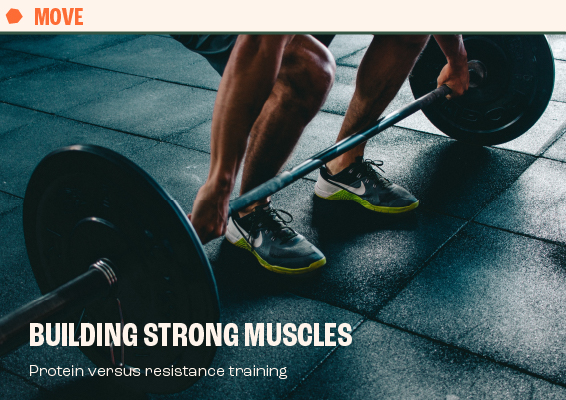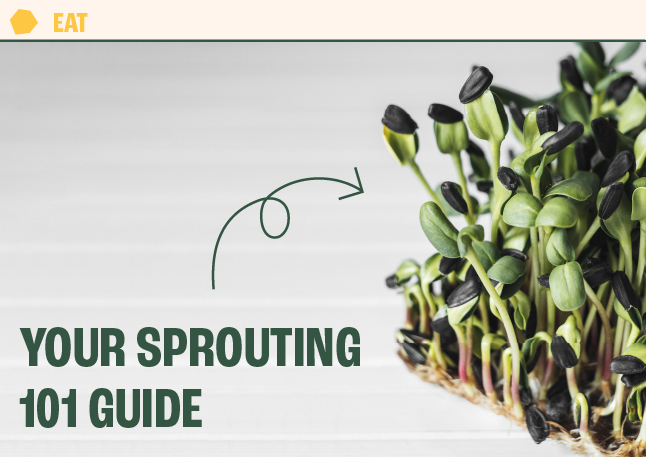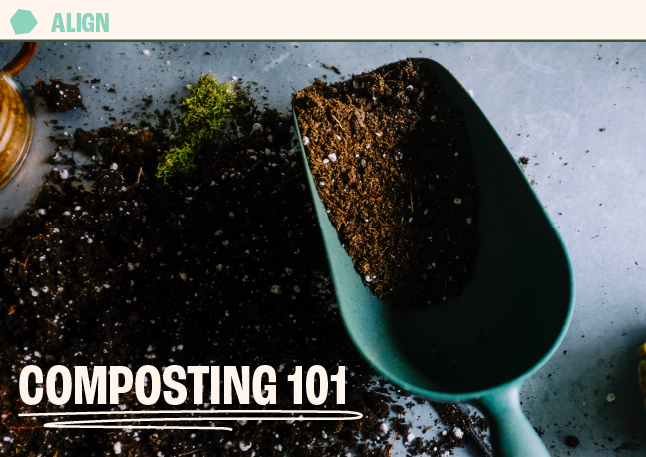Building and maintaining lean muscle mass is essential to health and longevity. Your muscles are the source of your physical strength which is associated with robust bone mineral density, a lower risk of metabolic conditions like type 2 diabetes, improved balance, a lower risk of falls, and a longer lifespan.
It’s unfortunately common to see decreasing muscle mass and strength as people age, and this often leads to declining physical ability and safety.
So, how do we hold onto and increase muscle strength? While I never like to reduce complex health information down to one quick fix, there is no escaping the central role of resistance training to increase strength. Western cultures tend to place a lot of emphasis on eating protein, but the truth is, protein won’t get you very far if you aren’t challenging your muscles with resistance.
In a new meta analysis which included over 80 clinical trials and almost 4000 subjects, researchers found muscle strength increased significantly only when protein consumption was coupled with resistance training. Minimal strength increase was noted without resistance training, though there was a small effect at intakes of about 1.3 g protein per kg body weight.
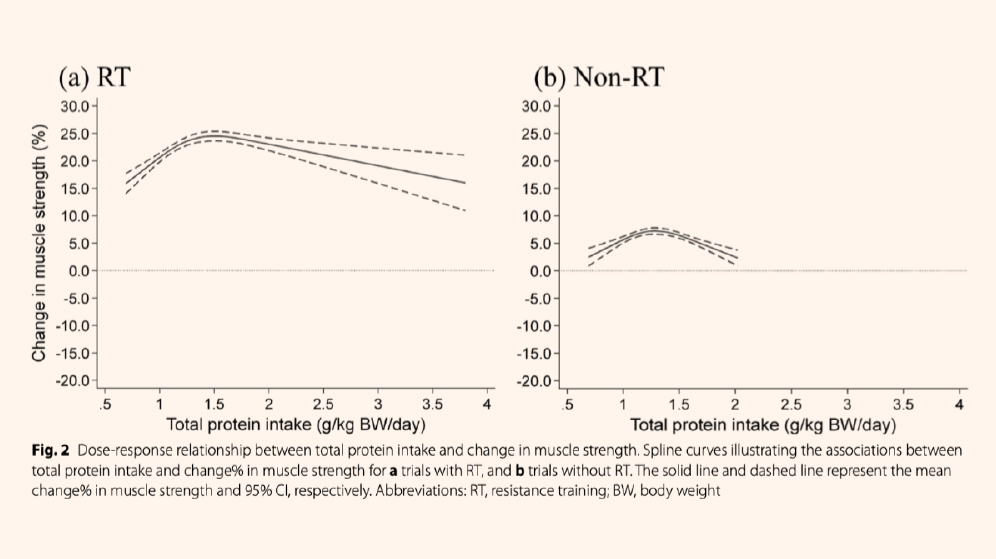
What’s interesting in this study is the level of protein intake that best enhances the effects of resistance training. When we look at the graph, we see the most significant gains up to 1.5 g of protein per kg body weight. Above 1.5 g/kg gains level off and eventually even decline.
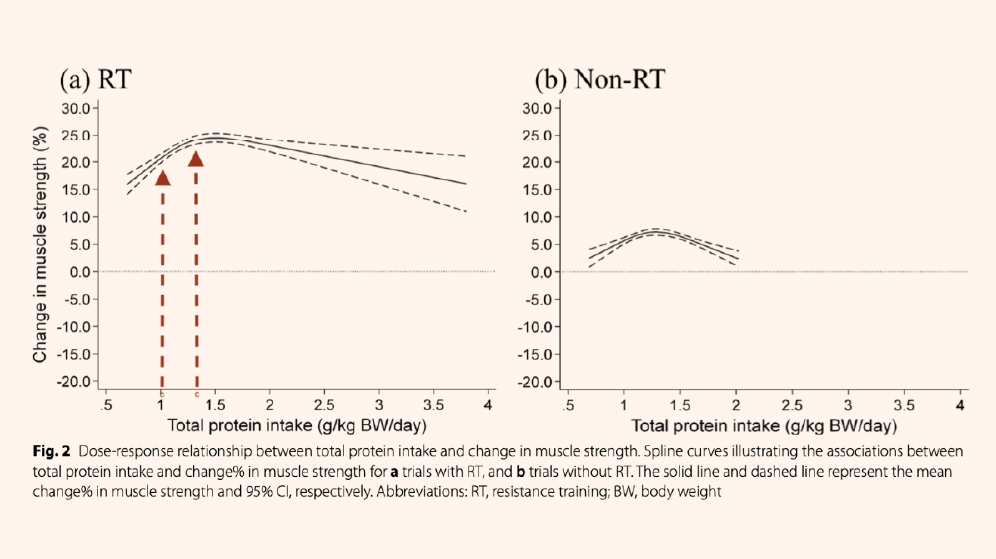
The average westerner consumes around 1.0-1.3 g/kg of protein. This number is slightly less for those over 50 or those who eat a vegetarian diet. As illustrated in the image above (by the red lines), this level of protein intake can support significant improvements in muscle strength, providing people are subjecting their body to resistance exercise. While this might sound like good news, the numbers for resistance training are sobering. The latest data shows only 30% of adults meet the minimum recommendations for strength training exercise, with almost 60% of adults not performing any resistance training at all.
The loss of strength and physical ability seen in western countries today is primarily due to a sedentary lifestyle, not protein deficiency.
I like to think of it this way; to build something requires both raw material (in this case, protein) and the actual work of building (resistance training). You can pile up all the logs you want, but they only become a cabin after skilled work. Your muscles follow the same rules.
Resistance training is the work necessary to turn protein from food into the muscle and strength you need to feel better for longer. To learn more about resistance training I highly recommend listening to Episode 223 of The Proof Podcast with exercise physiologist Drew Harrisberg where we talk about creating the optimal workout plan that includes resistance training for adding strength.
Now, resistance training is a critical component of strength, but that doesn’t mean you don’t need to have your eye on protein intake too. If you’ve read my book, The Proof is in the Plants, you know I’m all about incorporating more plant sources of protein into your diet. While eating enough protein is essential, where that protein comes from is equally important.
As just one example, cardiovascular disease is the leading cause of death, much higher than falls (as pointed out in my recent fact check), and research consistently shows one of the best ways to reduce the risk of dying from heart disease is by swapping out animal protein with high quality plant protein.
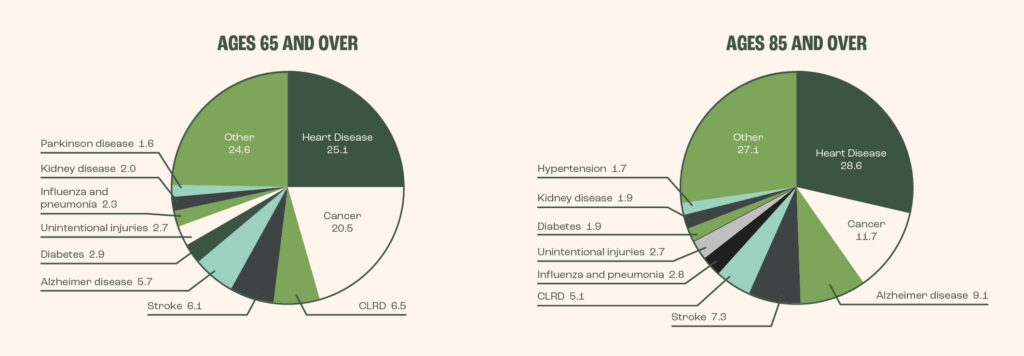
Practically, this means less foods like red and white meat, and more tofu, tempeh, beans, chickpeas, lentils, nuts and seeds – which just so happens to be in line with the American Heart Association’s 2021 scientific statement on improving cardiovascular health. A plant-based diet protects your heart and provides the protein you need to build muscle with resistance training.
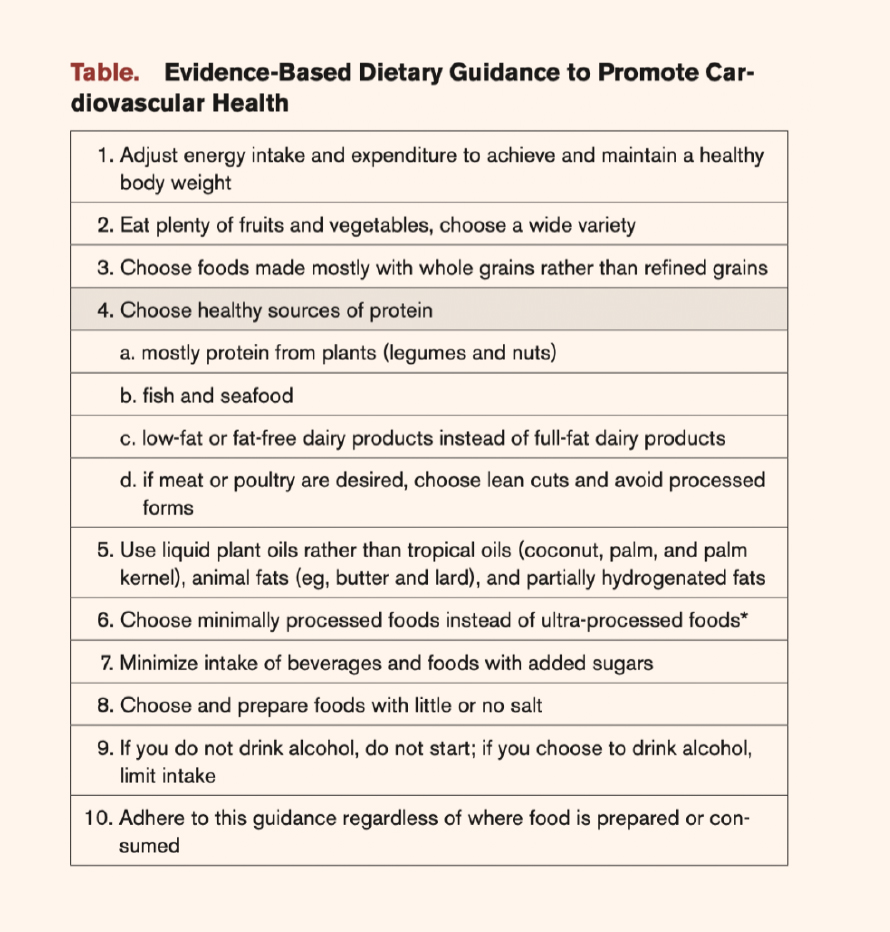
Every aspect of health is only one part of a whole. In just this blog post we’ve covered how strength training is linked to protein intake which influences heart disease risk which impacts longevity. It all matters, and this intricate interconnection means every positive choice you make, every plant you eat, and every workout has a ripple effect for total well-being.
– Simon

